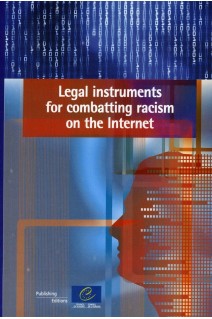



Various national and international legal instruments punish hate speech. However, the specific nature of the Internet calls for the adoption of new strategies to combat hate speech promoting racism and violence, which is widely and swiftly disseminated on the web.As the Internet ignores territories and has no boundaries, states cannot control it effectively by unilateral national regulation; what is needed is increased international co-operation. Efforts to harmonise national legislation - including the Additional Protocol to the Council of Europe Convention on Cybercrime - have come up against a series of difficulties. One of these is the fact that there is no universally accepted definition of the illegal nature of racist speech, which can be protected by the right to freedom of expression.This book describes the situation in 10 Council of Europe member and observer, states and discusses the problems faced and solutions introduced by these countries, as well as by European and international organisations and civil society.
Introduction
Terms of reference
Scope of the study
Our approach
Cautionary note
I. Internet: the technical and legal environment
1.1. The "network of networks": polycentric, ubiquitous, clandestine and ephemeral
1.2. Services offered
1.3. Operators involved
1.3.1. Service providers
1.3.2. Content providers
1.3.3. Relayers of information
II. Legal issues raised in the work of law-enforcement and investigative authorities
2.1. Jurisdiction: a vast territory to cover
2.1.1. Jurisdiction in criminal matters
2.1.2. Jurisdiction in civil matters
2.2. Data havens and freedom of expression in the USA
2.2.1. Federal legislation
2.2.2. States' legislation
2.3. Legal bases for investigations and seizures
2.4. Obstacles in media law to establishing personal liability for racist content
2.5. Obstacles raised by data protection law
2.6. Problems of international police co-operation
III. Responsibility of the various parties involved in the Internet
Introduction: the problem so far
3.1. Author's liability
3.1.1. Limits to criminal liability: the difficulty of identifying an author
3.1.2. Civil liability of the "author"
3.2. Different parties have different degrees of liability
3.2.1. Relayers' liability
3.2.2. Hosts' liability
3.2.3. Access providers' liability
3.3. Legislative solutions and measures in the pipeline
3.3.1. Existing law
3.3.2. Measures in the pipeline
3.3.3. The particular case of the European Union and the USA
3.4. Press laws/criminal liability
IV. The position in public international law
4.1. Texts setting out legal duties
4.2. States' practice in respect of Article 4 of the International Convention on the
Elimination of All Forms of Racial Discrimination (ICERD)
4.3. Opinions of specialist bodies and legal experts
4.4. Overview of the Convention on Cybercrime
4.5. Overview of the Additional Protocol to the Convention on Cybercrime
4.6. Conclusion
V. "Soft law"
5.1. Soft-law instruments
5.1.1. Netiquette
5.1.2. Codes of conduct - machinery for self-regulation
5.1.3. Providers' general terms and conditions
5.1.4. Government registration bodies and hotlines
5.1.5. Tools for tracing illegal content: filtering, rating and labelling systems
5.2. European approach
5.2.1. Action plan on the safer use of the Internet
5.2.2. EuroISPA
5.3. Implementation of soft-law instruments by Internet providers and NGOs
5.3.1. Austria
5.3.2. The Netherlands
5.3.3. Germany
5.3.4. France
5.3.5. Belgium
5.3.6. The United Kingdom
5.3.7. Italy
5.4. Implementation of soft-law instruments by government bodies
5.4.1. Switzerland
5.4.2. Sweden
VI. Conclusion
Appendix 1: ECRI general policy recommendation no 6: Combating the dissemination of racist, xenophobic and antisemitic materiel via the Internet
Appendix 2: Additional Protocol to the Convention on Cybercrime, concerning the criminalisation of acts of a racist and xenophobic nature committed through computer systems
Télécharger un extrait (1000)

Various national and international legal instruments punish hate speech. However, the specific nature of the Internet calls for the adoption of new strategies to combat hate speech promoting racism and violence, which is widely and swiftly disseminated on the web.As the Internet ignores territories and has no boundaries, states cannot control it effectively by unilateral national regulation; what is needed is increased international co-operation. Efforts to harmonise national legislation - including the Additional Protocol to the Council of Europe Convention on Cybercrime - have come up against a series of difficulties. One of these is the fact that there is no universally accepted definition of the illegal nature of racist speech, which can be protected by the right to freedom of expression.This book describes the situation in 10 Council of Europe member and observer, states and discusses the problems faced and solutions introduced by these countries, as well as by European and international organisations and civil society.
Attention, en vertu de nos conditions générales de vente, l'achat des PDF/epub est réservé aux particuliers.
